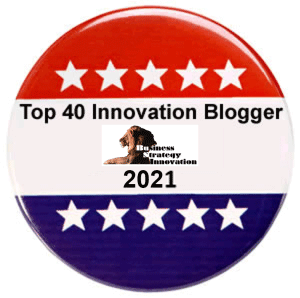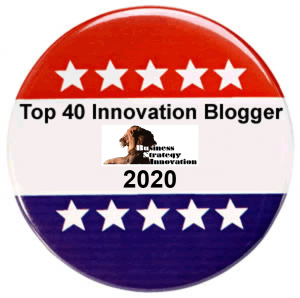Soccer – often referred to as the “beautiful game” – represents the best example of a sport with teams charged to perform their work under changing conditions. The best soccer teams in the world succeed by applying a mindset that recognizes a mutual dependency – that is, interdependency – between players on the field which is genuine and effective teamwork and collaboration. Making effective teamwork and collaboration the key to business enterprise success in the digital age.
The highly competitive global business world, where technology is enabling organizations to be more responsive to customers, along with empowering employees on the front line to make decisions, take risks and manage constant change, has become more and more like soccer.
Develop Mindset before Skill-Set
Most people in the workplace don’t function with a mindset that supports genuine collaborative teamwork. The typical mindset supports group work which is more about cooperating and coordinating with others. “At their core, most people have values that favor individual responsibility and performance over any form of groups, whether it be a team or otherwise,” write Douglas Smith and Jon Katzenbach in their best-selling book, The Wisdom of Teams.
Developing an alternative mindset “must be learned and can’t be simply inserted as new software,” writes Danah Zohar in her 2007 Abstract, An Alternative Sports Metaphor for Understanding Teamwork as Complex: Soccer. In my book, The Collaborator: Discover Soccer as a Metaphor for Global Business Leadership, 11 operating principles are introduced and serve as governing” principles to describe how people can cultivate an alternative mindset for supporting collaborative teamwork. These principles mirror actions that happen on the soccer field. They must become habits for practicing genuine collaborative teamwork!
Developing Skill-Set in the “beautiful game” of collaboration
In The Collaborator, competencies aligned to each operating principle are introduced. For example, competencies aligned to one operating principle, Rely on Each Other are – Relationship Building, Team Management and Team Player. When combined with operating principles, they provide an operating platform enabling the application of genuine collaborative teamwork.
Collaborate to Innovate using Soccer’s Model
Based on the Center for Creative Leadership research 2014 report, Future Trends in Leadership Development, we know that innovation doesn’t emanate from individual people – it lives in the social network. Soccer’s model provides a working description of a network for genuine collaborative teamwork. In soccer, an infinite number of connection points are created in a network consisting of 11 players who operate in a dynamic fashion under constantly changing conditions. Moving the ball on the field equates to causing existing plays (or ideas) to be combined in new ways for scoring goals (or innovating).
Silo Busting in the Age of Collaboration
Teams who struggle with the silo mindset are going to be limited in how much real collaboration they experience. I view it as a fixed mindset (and the collaboration mindset as a growth mindset) based on the work of Stanford University Professor, Carol Dweck, in her book, Mindset: The New Psychology of Success. For example, people with a growth mindset possess the kind of perseverance and resilience needed to be achieve creative solutions. This syncs-up well to the collaboration mindset and teams pursuing innovation.
The Beautiful Game of Collaboration
A big part of soccer’s attractiveness comes from the diversity and inclusion embedded in the game! It’s very diverse – by gender, race, ethnicity and age, for example. Also, there are no prerequisites for playing soccer unlike many sports. The benefits of diversity are real, “And if we can leverage them, we’ll be far better off…We’ll find better solutions to our problems,” writes Scott Page in his book, The Difference: How the Power of Diversity Creates Better Groups, Firms, Schools and Societies.
Successful soccer teams naturally function in a highly inclusive fashion. Without inclusiveness, there is not an opportunity to tap into the talent on the team. Again, this all relates to the how business can leverage soccer’s model to bridge changing demographics worldwide for building a competitive advantage in today’s global business environment.
It’s All in the Game for Millennials in Business
Why is soccer Millennials’ sport of choice as reported by Forbes in December 2015? We know that Millennials view teamwork as a key work value. We know they’re accustomed to collaborating online and they like to learn through collaboration. Not surprisingly, Millennials are very interested in innovation. Because Millennials typically bring a global perspective, coupled with a more inclusive nature and comfort around flatter operational structures, they are primed to learn, develop and practice genuine collaborative teamwork using soccer’s model.
Perhaps Millennials recognize all these connections and view soccer as a way to develop collaborative leadership skills in today’s global workplace.
Team Coaching Platform
Team coaches develop a collaborative mindset by convincing people on the team that high performance is needed for the task at hand and can only be achieved when the team functions in a way that recognizes the interdependent nature of the team’s relationship. Anything short of that recognition would not result in high performance! Once that commitment is in place, the coach can introduce the 11 operating principles in my book and then build the team’s understanding of the principles.
Developing a skill-set calls for teaching people a new range of competencies focused effective teamwork and collaboration. This process is highly personalized once people have been introduced to all competencies in the inventory. Action plans are created once strengths have been assessed. From there, it’s a case of targeting selected competencies for growth, followed up with ongoing coaching to reinforce learning and application.
Leveraging the Beautiful Game of Collaboration
Our highly competitive global business world has become more and more like soccer. Players must be skillful, adaptable and not position-driven (except for the goalkeeper), and the game demands flexibility (or agility) to change quickly, assimilate new information on the run and apply multiple skills to achieve results. These descriptors are equally applicable in today’s workplace. Soccer can be highly leveraged for improving team effectiveness in the beautiful game of collaboration through effective teamwork and collaboration, and innovative leadership the key to business enterprise success in the digital age.
Author’s Note by guest blogger Winsor Jenkins. This article is the second article to help answer the all-important “why” question regarding the application of soccer’s metaphor in the age of collaboration: Why Soccer? The first article is titled, The “Pitch” for a new Collaborative Leadership Metaphor (and Model).











